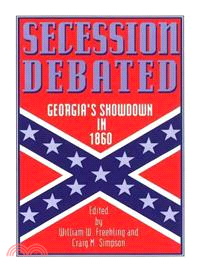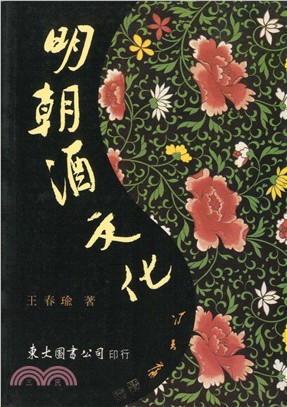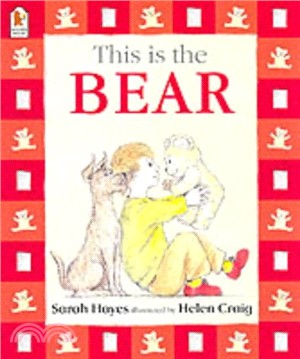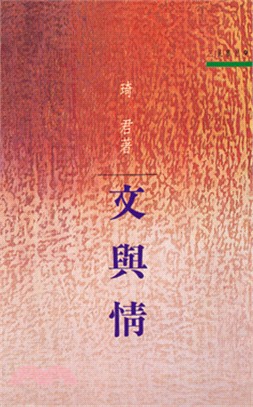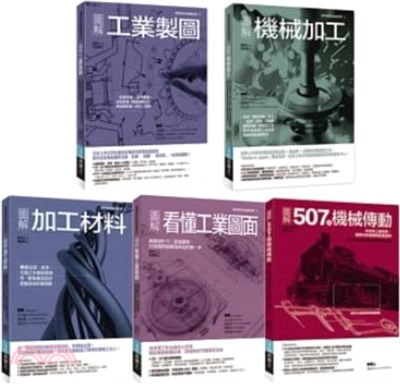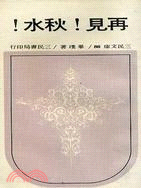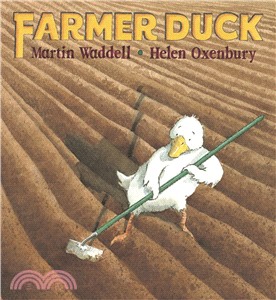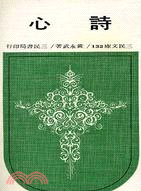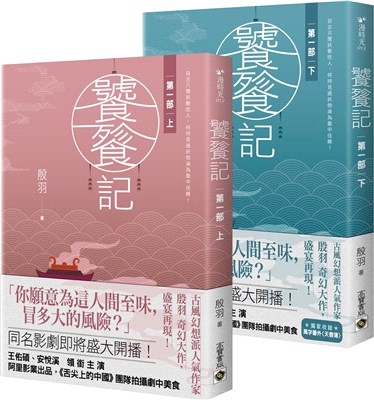Secession Debated ─ Georgia's Showdown in 1860
商品資訊
ISBN13:9780195079456
出版社:Oxford Univ Press USA
作者:William W. Freehling (EDT); Craig M. Simpson (EDT); William W. Freehling
出版日:1992/10/29
裝訂/頁數:平裝/165頁
規格:21cm*14.6cm*1.9cm (高/寬/厚)
-
藍思閱讀分級: 1230L
定價
:NT$ 1679 元優惠價
:90 折 1511 元
無庫存,下單後進貨(到貨天數約30-45天)
下單可得紅利積點:45 點
商品簡介
作者簡介
相關商品
商品簡介
The critical northern antebellum debate matched the rhetorical skills of Abraham Lincoln and Stephen A. Douglas in an historic argument over the future of slavery in a westward-expanding America. Two years later, an equally historic oratorical showdown between secessionists and Unionists in Georgia generated as much popular interest south of the Mason-Dixon line, and perhaps had an even more profound immediate effect on the future of the United States.
With Abraham Lincoln's "Black Republican" triumph in the presidential election of 1860 came ardent secessionist sentiment in the South. But Unionists were equally zealous and while South Carolina--a bastion of Disunionism since 1832--seemed certain to secede; the other fourteen slave states were far from decided. In the deep South, the road to disunion depended much on the actions of Georgia, a veritable microcosm of the divided South and geographically in the middle of the Cotton South. If Georgia went for the Union, secessionist South Carolina could be isolated. So in November of 1860 all the eyes of Dixie turned to tiny Milledgeville, pre-war capital of Georgia, for a legislative confrontation that would help chart the course toward civil war.
In Secession Debated, William W. Freehling and Craig M. Simpson have for the first time collected the seven surviving speeches and public letters of this greatest of southern debates over disunion, providing today's reader with a unique window into a moment of American crisis. Introducing the debate and debaters in compelling fashion, the editors help bring to life a sleepy Southern town suddenly alive with importance as a divided legislature met to decide the fate of Georgia, and by extension, that of the nation. We hear myriad voices, among them the energetic and self-righteous governor Joseph E. Brown who, while a slaveholder and secessionist, was somewhat suspect as a native North Georgian; Alexander H. Stephens, the eloquent Unionist whose "calm dispassionate approach" ultimately backfired; and fiery secessionist Robert Toombs who, impatient with Brown's indecisiveness and the caution of the Unionists, shouted to legislators: "Give me the sword! but if you do not place it in my hands, before God! I will take it." The secessionists' Henry Benning and Thomas R.R. Cobb as well as the Unionists Benjamin Hill and Herschel Johnson also speak to us across the years, most with eloquence, all with the patriotic, passionate conviction that defined an era. In the end, the legislature adopted a convention bill which decreed a popular vote on the issue in early January, 1861. The election results were close, mirroring the intense debate of two months before: 51% of Georgians favored immediate secession, a slim margin which the propaganda-conscious Brown later inflated to 58%. On January 19th the Georgia Convention sanctioned secession in a 166-130 vote, and the imminent Confederacy had its Southern hinge.
Secession Debated is a colorful and gripping tale told in the words of the actual participants, one which sheds new light on one of the great and hitherto neglected verbal showdowns in American history. It is essential to a full understanding of the origins of the war between the states.
With Abraham Lincoln's "Black Republican" triumph in the presidential election of 1860 came ardent secessionist sentiment in the South. But Unionists were equally zealous and while South Carolina--a bastion of Disunionism since 1832--seemed certain to secede; the other fourteen slave states were far from decided. In the deep South, the road to disunion depended much on the actions of Georgia, a veritable microcosm of the divided South and geographically in the middle of the Cotton South. If Georgia went for the Union, secessionist South Carolina could be isolated. So in November of 1860 all the eyes of Dixie turned to tiny Milledgeville, pre-war capital of Georgia, for a legislative confrontation that would help chart the course toward civil war.
In Secession Debated, William W. Freehling and Craig M. Simpson have for the first time collected the seven surviving speeches and public letters of this greatest of southern debates over disunion, providing today's reader with a unique window into a moment of American crisis. Introducing the debate and debaters in compelling fashion, the editors help bring to life a sleepy Southern town suddenly alive with importance as a divided legislature met to decide the fate of Georgia, and by extension, that of the nation. We hear myriad voices, among them the energetic and self-righteous governor Joseph E. Brown who, while a slaveholder and secessionist, was somewhat suspect as a native North Georgian; Alexander H. Stephens, the eloquent Unionist whose "calm dispassionate approach" ultimately backfired; and fiery secessionist Robert Toombs who, impatient with Brown's indecisiveness and the caution of the Unionists, shouted to legislators: "Give me the sword! but if you do not place it in my hands, before God! I will take it." The secessionists' Henry Benning and Thomas R.R. Cobb as well as the Unionists Benjamin Hill and Herschel Johnson also speak to us across the years, most with eloquence, all with the patriotic, passionate conviction that defined an era. In the end, the legislature adopted a convention bill which decreed a popular vote on the issue in early January, 1861. The election results were close, mirroring the intense debate of two months before: 51% of Georgians favored immediate secession, a slim margin which the propaganda-conscious Brown later inflated to 58%. On January 19th the Georgia Convention sanctioned secession in a 166-130 vote, and the imminent Confederacy had its Southern hinge.
Secession Debated is a colorful and gripping tale told in the words of the actual participants, one which sheds new light on one of the great and hitherto neglected verbal showdowns in American history. It is essential to a full understanding of the origins of the war between the states.
作者簡介
William W. Freehling is Singletary Professor of the Humanities at the University of Kentucky. He is the author of Prelude to Civil War, which won a Bancroft Prize in 1967, and The Road to Disunion: Secessionists at Bay, the first in a projected two-volume study, which won the Owsley Prize in 1991.
Craig M. Simpson is Professor of History at the University of Western Ontario and the author of A Good Southerner: The Life of Henry A. Wise of Virginia.
主題書展
更多
主題書展
更多書展今日66折
您曾經瀏覽過的商品
購物須知
外文書商品之書封,為出版社提供之樣本。實際出貨商品,以出版社所提供之現有版本為主。部份書籍,因出版社供應狀況特殊,匯率將依實際狀況做調整。
無庫存之商品,在您完成訂單程序之後,將以空運的方式為你下單調貨。為了縮短等待的時間,建議您將外文書與其他商品分開下單,以獲得最快的取貨速度,平均調貨時間為1~2個月。
為了保護您的權益,「三民網路書店」提供會員七日商品鑑賞期(收到商品為起始日)。
若要辦理退貨,請在商品鑑賞期內寄回,且商品必須是全新狀態與完整包裝(商品、附件、發票、隨貨贈品等)否則恕不接受退貨。



